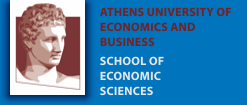| Abstract |
In the Mediterranean basin, the status of commercial fish stocks is critical. In this sense, small scale, low impact fishing is seen as one of the ways to redress this balance, as it utilizes methods having minimal impacts on the marine environment, species, and habitats. Furthermore, sustainable small-scale fishing is an important activity for both economic and social reasons. Although low impact fishers make up 95% of the Greek fleet, they manage to reach only about 17% of the total consumers, thereby reaping only a small proportion of the profits. In this paper, we explore how social innovation can support public policies and the private sector in delivering successful and innovative food distribution channels in the Greek fishing sector. Through an innovative evaluation method based on both qualitative information and quantitative indicators we analyse the project 'A Box of Sea', established in 2016 by Greenpeace Greece and fishers in Leros and Lesvos. This initiative provides a novel food consumption and distribution model aiming at making low impact fishing more economically viable, and therefore achieving a triple sustainability for the sector (environmental, social, and economic). Our results shed light on the processes which brought the project to thrive. Moreover, we identify third sector social innovation schemes as key tools to develop novel distribution systems supporting local communities (fostering new networks and collaborations across fishers), while improving governance practices of the current fishing sector creating a fairer market that protects the marine environment. |

